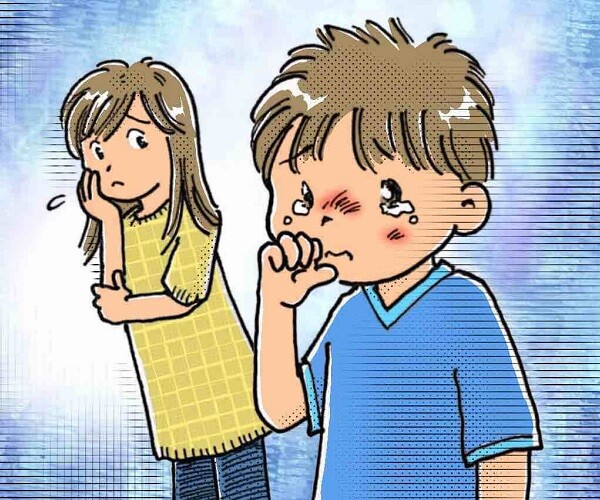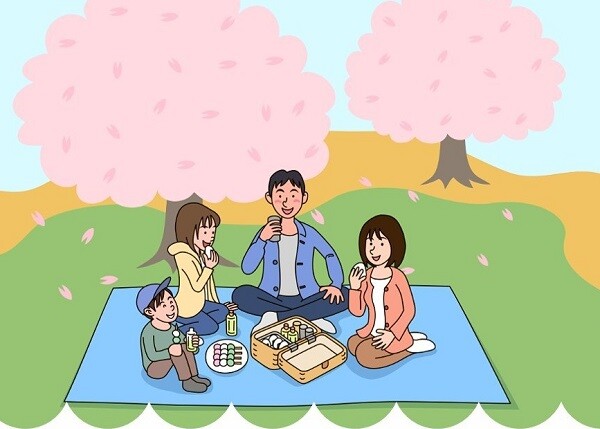

Why are children becoming more sensitive?
A study by the Center on the Developing Child at Harvard University found that children raised in overly protective environments have stress hormone levels three times higher than their peers when faced with failure.
While stress hormones are a natural response to help the body quickly adjust and cope with emergency situations, excessive and prolonged secretion can have serious negative impacts on health. This is similar to greenhouse flowers: they may look beautiful and flourish, but they struggle to withstand strong winds or sudden rain.

Many children are becoming more sensitive.
A mother shared that not long ago, she took her son to a football match at school. As the boy took to the field, his mother kept a close eye on him, frequently running to wipe his sweat and provide him with water. When the child accidentally fell while playing, his first reaction was not to get up on his own but to turn and look for his mother, as if her presence was a prerequisite for him to feel safe.
This scenario brings to mind the psychological concept of “helicopter parenting.” It means that parents try to resolve all obstacles before they occur, but they don’t realize that this action deprives their children of growth opportunities.
Instead of letting children experience, learn, and develop their ability to cope with challenges, parents inadvertently create an overly protective environment, hindering their children from acquiring the necessary skills to handle pressure and difficulties in life.
This deficit can lead to serious problems in the future, making children sensitive and shy when facing real-life situations without support.

Take your children to these two occasions to build resilience and improve their EQ.
In reality, children’s resilience to disappointment is developed through practice.
Therefore, experts encourage parents to provide their children with more diverse experiences to foster self-confidence and improve their mood and EQ.
Occasions with increased competition: Games, contests, and stage performances
Some children tend to cry when they lose a game and become upset and sullen if they don’t get their favorite toy. Such sensitivity is not uncommon during children’s development.
From a psychological perspective, although children may cry when they lose, continuous exposure and experience will temper and mature their psychology. As they encounter diverse situations, they will learn to manage their emotions calmly, turning every failure into a valuable lesson and a new step forward.
For example, a child who has experienced 100 failures is likely to be far more resilient to disappointment than a child who has only faced ten failures.

Expose your children to competitive environments, such as contests and performances.
Similar to vaccination, an appropriate dose of “inhibitory antigens” can activate a child’s psychological “immune system.” Overcoming challenging experiences builds mental strength and resilience, making children more resilient in future difficult situations.
Instead of shielding your children from all failures, give them opportunities to face, learn from, and grow from these experiences.
Parents can facilitate their children’s participation in competitive environments, such as contests and performances. However, when it comes to competitions, parents should teach their children three essential lessons:
– Failure is not terrible. Through failure, children learn how to succeed next time.
– Stay humble in victory and understand that there will always be someone better, preventing arrogance.
– Regardless of the outcome, persistence is valuable, and progress accumulates daily.
Occasions with increased social interaction: Family gatherings, community activities, and new environments
Some parents complain that their children are “bullies” at home but meek outside, becoming shy and reluctant to communicate.
The primary cause is a lack of social experience and knowledge about conflict resolution.
Neuroscientific research has discovered that complex social environments can activate the prefrontal cortex of a child’s brain, the center for emotion management and decision-making.
Just like learning to swim, children must get into the water and practice repeatedly. Regarding communication, children need to practice in real-life situations.

Increase occasions for social interaction.
If you want to improve your child’s EQ, consider the following three methods:
– Create diverse social contexts, such as letting them ask for prices in supermarkets or order food when dining out.
– Teach them common conversational phrases, such as: “Can I play with you?”
– Play emotion recognition games, such as covering the expressions of characters in picture books and asking children to guess the emotions.
The best educational approach is not to shield children from all challenges but to provide a “scaffolding” of support when needed and remove it when they can stand on their own. This warm support is the “psychological armor” children need to overcome obstacles on their journey to adulthood.



































